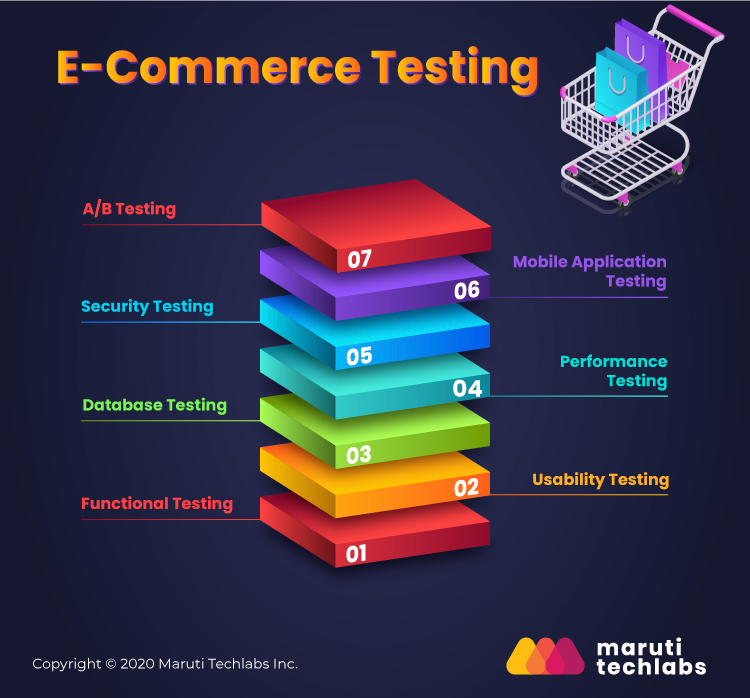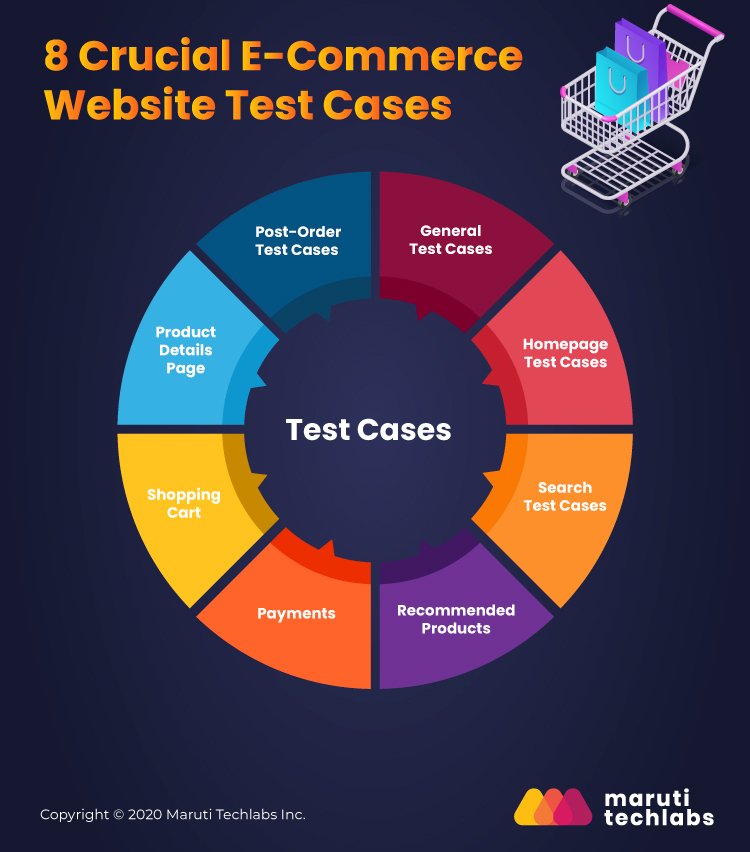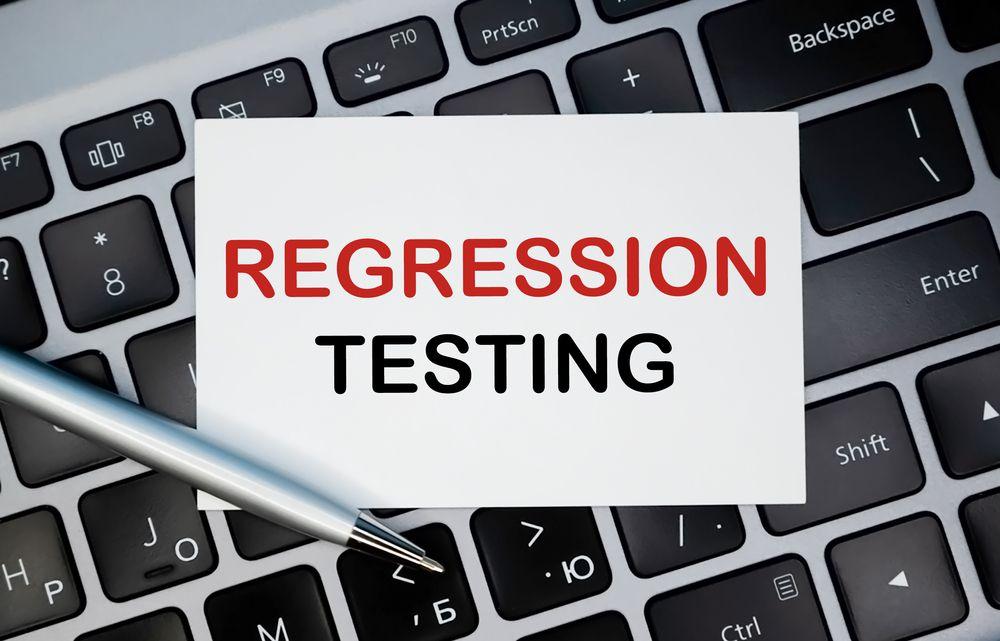Your Guide to E-Commerce Website Testing - Checklist & Test Cases
With the number of online buyers all set to reach a whopping 2.14 billion by 2021, the popularity of eCommerce websites has grown exponentially in the last few years. And this means that requirements for eCommerce website testing have become all the more sophisticated to ensure that they correspond to the emerging market changes.
Hey there! This blog is almost about 2500+ words long and may take ~10 mins to go through the whole thing. We understand that you might not have that much time.
This is precisely why we made a short video on the topic. It is less than 2 mins, and summarizes what goes behind efficient eCommerce website testing? We hope this helps you learn more and save your time. Cheers!
eCommerce testing is a process that is used to evaluate & assess eCommerce websites and applications for their intended and accurate operational functionality with no performance or security issues.
The idea of eCommerce website testing is to consider and target different designs, specifications, traits, functionalities, pages, and features of the website, which are likely to be prone to various risks and issues associated with the performance of the website.
What Is The Need For Effective Testing Of E-Commerce Websites?
Unlike the popular notion, eCommerce testing is not just about enhancing security features. Effective eCommerce testing goes beyond ensuring functionality; it's about incorporating quality engineering services to achieve a robust and secure platform.
An efficient security testing of eCommerce applications can help your business identify and resolve multiple issues in advance, provide your services smoothly, avoid a number of financial risks, and comply with international standards to reduce cyber threats.
Concluding security testing on a committed timeline can prove to be a tedious task to undertake. Furthermore, you might have to contact an IT consulting and CTO service company to adhere to a strict timeline. It would be in your best interest to seek external CTO consulting to get an edge over your competitors and harness technological developments to their maximum potential.
Benefits of E-Commerce Testing
E-Commerce businesses are usually based on diverse software applications, mobile applications, and unified integrated systems. Efficient testing and test automation for these eCommerce websites is a critical requirement for retailers who have implemented custom eCommerce solutions.

While test automation helps in faster time to market, a robust test case makes the entire process more effective. Apart from helping identify the required changes and taking appropriate actions, test management also helps in developing powerful risk management processes and effective applications.
Other reasons for eCommerce website testing include –
- Ensuring all the pages of the website are tested thoroughly, and eCommerce transactions are completely secure and validated.
- Ensuring there is no compromise on any critical factors such as mobile responsiveness, customer data security, user experience, loading time.
- Testing, verifying, and validating the product or application prevents it from intruders and cyber hackers.
- E-commerce testing ensures defect-free and user-friendly applications.
If you're planning to launch an e-commerce website, partnering with a reputable mobile app development company can help ensure that your website is fully optimized for mobile users.
Types Of E-Commerce Websites/ Applications
Before going into the details of test cases and checklist for eCommerce testing, let’s first discuss the different types of eCommerce websites/apps available –
Depending on the buyer and seller, eCommerce websites/apps can be divided into 5 different categories –
1. B2B (business to business) Model
The idea here is one business helping another business with the help of an online platform. Some of the examples of this model include Alibaba.com, Amazon business, and 3DXTech.
2. B2C (business to customer) Model
The primary focus in this type of business model is businesses helping out direct customers via an online store from which people can buy goods.
Some of the examples of B2C business models include Facebook, LinkedIn, Uber, and Pandora.
3. C2B (customer to business) Model
In this model, an individual will be directly selling his product to big companies. Examples of this model include writers, artists, freelancers, web designers, and other similar service providers.
4. C2C (customer to customer) Model
C2C business model involves an individual selling his product directly to the customer. Everything that needs to be done, such as product listing, website maintenance, shipping, etc., has to be done or managed by the person who is running the shop.
5. C2A (consumer to administration) Model
In this case, the business transaction happens between the individual and public administration. An example of this would be using an online portal to book a seat in the theatre.
Quality Risks That E-Commerce Testing Can Prevent
Apart from helping you prevent unsatisfied clients, lost revenues and spoilt brand reputation, a high-quality e-commerce solution can also help you uncover and avoid various other risks including –
Unavailability Of Online Store
This is a common problem that may originate from the provider’s side. High-quality software testing can easily prevent this risk, especially for high loads at peak times, for example, during holiday sales.
Weak Search Functionality / Slow Loading Speed
Most of the customers or website visitors prefer to browse through the items on offer before making the actual purchase. Slow loading speed and weak search functionality can certainly disappoint potential customers and result in a low conversion.
Poor Shopping Cart Functionality
There are various instances when a customer can find the goods they are looking for but cannot order because of problems with the shopping cart functionality. For example, customers cannot apply a discount coupon or add/remove options that don’t work.
Misleading Analytics
Website analytics allows you to gain meaningful insights about website traffic, sales conversion rate, average order value, revenue by traffic source, the percentage of returning customers, and more. With poor analytics and testing, a business loses its chance to gain the advantage of a reliable basis for assessing its overall business strategy.
8 Crucial E-Commerce Website Test Cases
Test cases are essentially the scripted or non-scripted scenarios created in order to check the functionalities of an eCommerce website or application. Here we have compiled a detailed checklist and the most important test cases that your e-commerce website testing team needs to focus on –

1. General Test Cases
General test cases for eCommerce websites/applications should be composed thoughtfully and in a detailed manner. Make sure to pay attention to the smallest of things like interaction quality of the homepage, ease of navigation across the product categories, or whether the picture of the product is enlarging upon clicks and many more.
Among some of the general tests that you need to perform on your website include –
- Redirecting of the website links to correct product/category pages
- Clear visibility of the product, price, category name, price, company logo, and product description
- Are all the category pages have a relevant product listed specifically for the category?
- If the count of the total number of products listed on the category pages is correct
2. Homepage Test Cases
Homepages in e-commerce websites go far beyond simple design features. Generally seen as a clickable image or slideshow with auto-scroll redirecting your website visitors to the specific pages, it is, in fact, a robust tool for marketing purposes.
The homepage acts as a profile space of your eCommerce website, making testing a vital component at this stage. The essential things that QA team needs to focus on with the homepage include –
- Is the page going to auto-scroll, and at what interval will the images be refreshed?
- When the customer hovers over it, is it going to scroll to the next one?
- When clicked on, is it taking the customer to the right page and right product deal?
- Is the loading speed acceptable?
- Can the rest of the content be viewed effortlessly, including newsletters, banners, social media links in the site footer, etc.?
- Does the homepage appear the same way in different browsers and screen resolutions?
3. Search Test Cases
The search feature is one of the most commonly used options in an eCommerce store. Even an extensive and intuitively category design sometimes makes it difficult for customers to find the product they’re looking for. This makes it essential to test search features and make it easier for customers to locate products quickly without much hassle.
Important things to test in the search feature include –
- Is the search available based on the product name, brand name, etc.?
- Are different sort options available based on parameters such as price, brand, reviews/ratings, and more?
- What is the ideal number of results to display per page?
- For multi-page results, are there options available to navigate between them?
It is important here to note that the customer can search for a product right on the homepage or from any of the interior pages. So, your website search has to be adapted accordingly.
4. Recommended Products
This is an essential part that is largely neglected in eCommerce testing. After the purchase is made by the client, there is a follow-up session that involves showing customers recommended items which they can purchase further. It is an important section to test because it acts as an anchor to win customer loyalty in the long run. Important things to check here include –
- Check if the recommendations given to customers are of relevant products that will interest the client
- Are the recommendations showing on the page immediately after the client confirms the order they have made?
5. Payments
Unsuccessful or failed transactions are one of the main reasons why most customers exit a website or online store without completing the purchase. This makes payments one of the most crucial test cases for running a successful e-commerce website. Here are some of the important things to test on the payments page –
- Checking for all the different payment options from start to finish
- Can customers check out as guests to make payments? Or should they register before checking out?
- In the case of returning customers, does the page prompt them to sign in?
- Security testing for the storage of customer credit cards or any other financial information. It is important to take all steps to ensure that user financial information is highly secure
- Once the payment is made, what’s the return page defined?
- Does the customer receive an order confirmation as an email/text message along with the order number once it’s completed?
6. Shopping Cart
Shopping carts are one of the key features of an eCommerce website, and this requires thorough testing. It allows the customers to easily select and store multiple items in their shopping cart and purchase them all at once. Among some of the main test cases which should be part of testing a shopping cart include –
- If all items and their totals are displayed in the cart
- Option to add items to the cart and continue shopping
- Applicable taxes as per location
- Option to add more items to the cart with accurate total reflecting
- Option to remove items from the cart
- Accurate calculation of shipping costs with different shipping options
- Option to apply coupons
7. Product Details Page
In eCommerce website testing, testing the product page is as important as shelving the goods available in a brick-and-mortar retail store. Thus testing that these products display correctly on the site is of great importance.
Considering the fact that the product page displays a lot of important information, including the product description, image, specification, and pricing, it is critical that all this information is displayed accurately whenever a customer logs in. Important things to check here include –
- Price of product
- Image or images
- Specifications (size, color or variations options)
- Reviews and check out options
- Shipping information
- Delivery options
- In-stock/out of stock details
8. Post-Order Test Cases
When we place an order on an eCommerce website, there are multiple actions that we can do related to the purchase. Testing the post-purchase functionality is, therefore, an important aspect of eCommerce testing. Some of the most important post-purchase test cases include –
- Checking if the customer is able to cancel the order or change the quantity of the order
- If the customer is able to review the recent order and history of purchased items
- Check if the customer is able to change billing/shipping or other profile information
Top 7 Features To Be Tested In An E-Commerce Application
One of the key reasons for eCommerce testing is to check the functionality and usability of the application, its user-friendliness, and to make your website/application bug-free.
To make the process smooth, here are some of the important features which need to be tested in an eCommerce website or application –
Website Functionality For Different User Scenarios
An eCommerce website/application works differently for different user profiles such as customers (both authorized and unauthorized), sales representatives, and online shop managers. It is, therefore, important to make sure that your eCommerce website test cases cover the varied operations for all types of users such as filtering of items, adding/removing goods to the shopping cart, and so on.
Compatibility With Web Browsers
One of the critical features to test in eCommerce applications is to check their compatibility with various types of web browsers, including Internet Explorer, Google Chrome, Opera, Firefox, Safari, etc. This is important to make sure that the customers are able to use your e-commerce website without experiencing any technical glitches.
Application Workflow
To offer a hassle-free eCommerce experience to customers, it is pivotal to test the complete workflow of your eCommerce web/mobile application that consists of login and signup options, sorting feature, search functionality, add/remove functionality in the shopping cart, check-out process, payment gateway, and payment processing among others.
Mobile Responsiveness
An increasing number of users are now using mobile devices, driving companies to reconsider their eCommerce testing strategy, and take a mobile-first approach in their eCommerce applications. The important aspect here is to test the responsive design of the application in mobile devices of different screen sizes.
Social Media Integration
Irrespective of the type of eCommerce application or website, social media is one of the most important factors in defining its success. But to leverage it fully, you need to make sure that social media integration is completely aligned with website architecture and workflow, and your eCommerce website testing is an ideal way to test social media workflow and functionality.
Security And Vulnerability Assessments
Without a doubt, security testing to check for security and vulnerability issues is one of the most important yardsticks to keep in mind during eCommerce testing. As eCommerce applications involve dealing with valuable information, including customers’ personal and banking data, assessing security issues is non-negotiable. Among the varied testing methods that can be used for this include SQL Injection and ethical hacks on the login.
SEO-Related Aspects
One of the other important features in eCommerce testing is to check the overall performance of your website/application. There are several parameters that you need to conduct performance testing on, including data transfer rate, efficiency, webpage loading speed, uptime, database performance, website traffic load tolerance, and error messages.
Further, to win higher rankings in top search engines, it’s important to check whether various SEO strategy components such as the title tags, image alt tags, URL structure, meta descriptions, etc. are implemented accurately and correspond to the requirements.
Apart from this, other common features to test in eCommerce applications include website content, the format of webpage, cookies, social buttons, website accessibility, adding/deleting content, removing/adding links, making changes to shipping settings, and analytics.
Read to know more about the best e-commerce platforms where you can easily create and manage your own online store.
To Sum It Up
For any e-commerce business, quick and effective testing translates to exceptional customer experience leading to a profitable business. Quality issues with eCommerce websites can quickly snowball into dissatisfied customers, and lost marketing and sales opportunities.
It is, therefore, important for businesses to effectively communicate with your QA team and make sure your eCommerce testing procedures give your website unmatched efficiency and robustness.
We provide a full spectrum of Quality Assurance and Quality Engineering services for your web and mobile app development services. Our team of expert QA engineers ensure that your business processes meet rigorous quality checks and function consistently, in a cost-effective and scalable way.
Get in touch with us here for all your QA requirements.



















